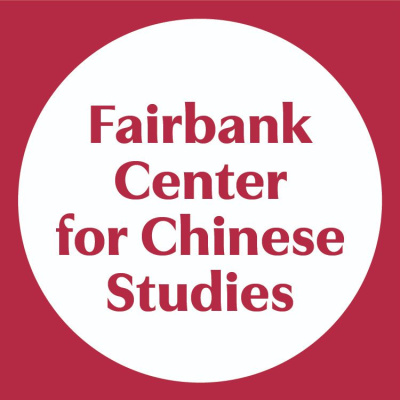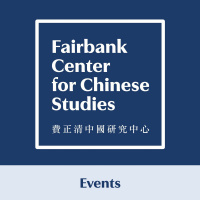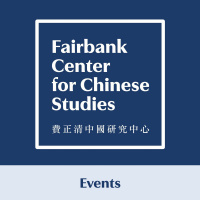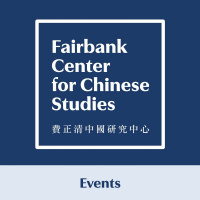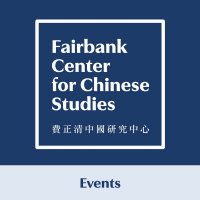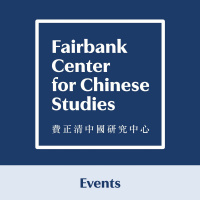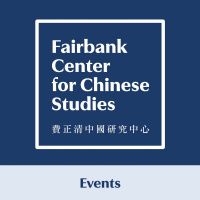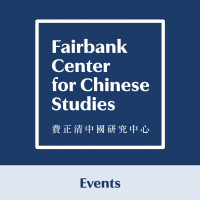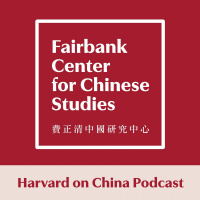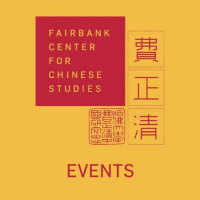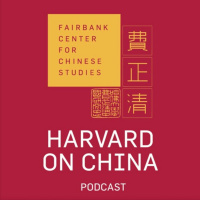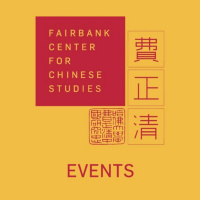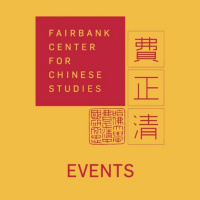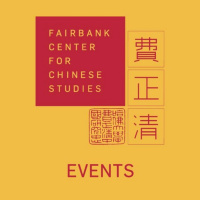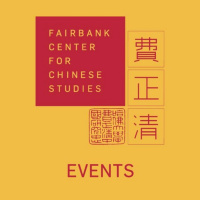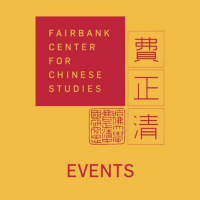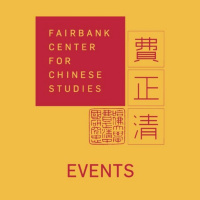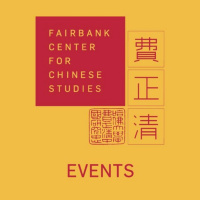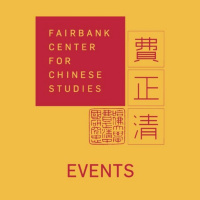Sinopsis
The Fairbank Center is a world-leading center on China at Harvard University. Listen to interviews and events from the Center here on our "Harvard on China" podcast.
Episodios
-
How China Escaped Shock Therapy, with Isabella Weber
15/10/2021 Duración: 01h24minSpeaker: Isabella Weber, Assistant Professor of Economics, University of Massachusetts Amherst China has become deeply integrated into the world economy. Yet, gradual marketization has facilitated the country’s rise without leading to its wholesale assimilation to global neoliberalism. This book uncovers the fierce contest about economic reforms that shaped China’s path. In the first post-Mao decade, China’s reformers were sharply divided. They agreed that China had to reform its economic system and move toward more marketization – but struggled over how to go about it. Should China destroy the core of the socialist system through shock therapy, or should it use the institutions of the planned economy as market creators? With hindsight, the historical record proves the high stakes behind the question: China embarked on an economic expansion commonly described as unprecedented in scope and pace, whereas Russia’s economy collapsed under shock therapy. Based on extensive research, including interviews with key
-
The Yellow River: A Natural and Unnatural History, with Ruth Mostern
15/10/2021 Duración: 01h32minSpeaker: Ruth Mostern, University of Pittsburgh This talk showcases Ruth Mostern’s new book: The Yellow River: A Natural and Unnatural History (Yale University Press, 2021). The Yellow River explains how environmentally transformative human activity has shaped the whole watershed and constituted the relationship between people and the river since Neolithic times. The book demonstrates that the history of the relationship between people and the river is a history of soil as much as it is a history of water, and that some of the most important episodes in Yellow River history transpired on the semi-arid lands of the Loess Plateau, far from the riverbed itself. Using GIS and data analysis as well as close readings of historical sources, the book reveals that although the Yellow River floodplain was sometimes a site of frequent and devastating disasters, this was only the case at times of certain decisions about public policy and infrastructure design. Ruth Mostern is Associate Professor of History and Direc
-
Disaggregating China Inc., with Yeling Tan
15/10/2021 Duración: 01h14minSpeaker: Yeiling Tan, Assistant Professor, Department of Political Science, University of Oregon Professor Yeling Tan discusses her book, Disaggregating China, Inc: State Strategies in the Liberal Economic Order. China’s entry into the World Trade Organization (WTO) in 2001 represented an historic opportunity to peacefully integrate a rising economic power into the international order based on market-liberal rules. Yet current economic tensions between the US and China indicate that this integration process has run into trouble. To what extent has the liberal internationalist promise of the WTO been fulfilled? To answer this question, this study breaks open the black box of the massive Chinese state and unpacks the economic strategies that central economic agencies as well as subnational authorities adopted in response to WTO rules demanding far-reaching modifications to China’s domestic institutions. The study explains why, rather than imposing constraints, WTO entry provoked divergent policy responses from
-
Transnational Aging in the Chinese Diaspora
15/10/2021 Duración: 01h59minPanel Participants: Sara L. Friedman, Professor of Anthropology and Gender Studies, Indiana University Russell King, Professor of Geography, University of Sussex Sarah Lamb, Barbara Mandel Professor of Humanistic Social Sciences and Professor of Anthropology, Brandeis University Andrea Louie, Professor of Anthropology, Michigan State University Nicole Newendorp, Associate Director and Lecturer, Social Studies, Harvard University Ken Chih-Yan Sun, Assistant Professor of Sociology and Criminology, Villanova University Nearly 4.3 million immigrants in the United States are age sixty-five and over. Research predicts that the number of nonwhite elderly immigrants will continue to grow, doubling to 36 percent of the senior population by 2050. Although the Covid-19 pandemic has changed the lives of older migrants, the familial and social networks in which they are embedded remain in place and can translate into important protective resources. At the same time, Chinese societies – e.g., mainland China, Taiwan, and H
-
The Future is Now: On Newborn Socialist Things, with Laurence Coderre
24/09/2021 Duración: 01h31minSpeaker: Laurence Coderre, Assistant Professor of East Asian Studies, New York University Whereas the contemporary era in China is often depicted in terms of rampant, ideologically vacuous commodification, the Cultural Revolution (1966-76) is typically cast as a time of ubiquitous politics and scarce goods. Indeed, with the exception of the likeness and words of Mao Zedong, the media and material culture of the Cultural Revolution are often characterized as a void out of which the postsocialist world of commodity consumption miraculously sprang fully formed. I instead argue that the Cultural Revolution media environment and the ways in which its constituent elements engaged contemporaneous discourses of materiality and political economy anticipated the widespread commodification now so closely associated with the Reform Period (1978-present). To that end, this talk offers a brief history of the “newborn socialist thing” (shehuizhuyi xinsheng shiwu), which, as a technical term originating in the 1950s, refer
-
Timber and Forestry in Qing China, with Zhang Meng
24/09/2021 Duración: 01h16minSpeaker: Zhang Meng, Assistant Professor of History, Vanderbilt University Part of the Environment in Asia lecture series In the Qing period, China’s population tripled, and the flurry of new development generated unprecedented demand for timber. Standard environmental histories have often depicted this as an era of reckless deforestation. The reality was more complex: as old-growth forests were cut down, new economic arrangements emerged to develop renewable timber resources. Timber and Forestry traces the expansion of an interregional trade network to cover the entire basin of the Yangzi River. Of driving concern were questions of sustainability: How to maintain a reliable source of timber across decades and centuries? And how to sustain a business network across a thousand miles? Delving into rare archives to reconstruct property rights systems and business histories, the book considers both the formal legal mechanisms and the informal interactions that helped balance economic profit with environmental m
-
Reassessing June Fourth, with Jeremy Brown and Louisa Lim
17/09/2021 Duración: 01h20minHow significant were the events of June 1989 in the broader span of recent Chinese history? How does the aftermath of the Beijing massacre help to explain events since then, including what is happening in Hong Kong today? How deep is the state-imposed amnesia about Tiananmen? What is the future of June Fourth Studies? Join authors Jeremy Brown and Louisa Lim for a discussion about these and other questions. Jeremy Brown is Professor of History at Simon Fraser University. He is the author of June Fourth: The Tiananmen Protests and Beijing Massacre of 1989 and City Versus Countryside in Mao’s China: Negotiating the Divide. Dr. Louisa Lim is a Senior Lecturer at the University of Melbourne and the author of The People’s Republic of Amnesia: Tiananmen Revisited, which was shortlisted for the Orwell Prize. She was a correspondent for NPR and BBC based in China for a decade. Her new book Indelible City: Dispossession and Defiance in Hong Kong will be published in April 2022. Part of the Modern China Lectu
-
China's Leaders from Mao to Now, with David Shambaugh
10/09/2021 Duración: 01h12minSince the establishment of the People’s Republic of China in 1949, five men have principally shaped the ruling Chinese Communist Party and the nation: Mao Zedong, Deng Xiaoping, Jiang Zemin, Hu Jintao, and Xi Jinping. David Shambaugh analyzes the personal and professional experiences that shaped each leader and argues that their distinct leadership styles had profound influences on Chinese politics. David Shambaugh is Gaston Sigur Professor of Asian Studies, Political Science, & International Affairs and the founding director of the China Policy Program in the Elliott School of International Affairs at George Washington University. Before joining the GW faculty, Professor Shambaugh taught Chinese politics at the University of London’s School of Oriental & African Studies (SOAS) and was editor of The China Quarterly. He also worked at the U.S. Department of State and National Security Council. He served on the board of directors of the National Committee on U.S.-China Relations, and is a member of the Counci
-
The State of Taiwan Studies: A Roundtable Discussion on Methods and Directions
05/09/2021 Duración: 01h42minPanelists Jaw-Nian Huang, Assistant Professor, Graduate Institute of Development Studies, National Chengchi University, Taiwan Lawrence Zi-Qiao Yang, Assistant Professor, Institute of Social Research and Cultural Studies, National Yang Ming Chiao Tung University, Taiwan Kevin Wei Luo, Doctoral Fellow, Hou Family fellow in Taiwan Studies, Harvard University Lev Nachman, PhD in political science, UC Irvine Discussant Ching-fang Hsu, Postdoctoral Fellow, Research Institute for the Humanities and Social Sciences, Ministry of Science and Technology, Taiwan This roundtable discussion brings together past and present Hou Family Doctoral Fellows in Taiwan Studies at the Fairbank Center, to discuss current methodological approaches and emerging thematic directions in the study of Taiwanese history, society, and politics. Bridging across disciplinary fields such as media studies, history, and political science, the panelists will share their research experiences amid resurging interest in Taiwan, and envision how thi
-
Popularizing Law in China, with Jennifer Altehenger
25/05/2021 Duración: 33minHow did the People's Republic of China popularize basic legal knowledge after its founding in 1949? Jennifer Altehenger, Jessica Rawson Fellow in Modern Asian History and Associate Professor of Chinese History at the University of Oxford, explains how China's party-state attempted to mobilize ordinary citizens to learn laws during the early years of the Mao period (1949–1976) and in the decade after Mao’s death. Professor Altehenger is a historian of modern and contemporary China, in particular the history of materials and industrial design in Chinese politics and everyday life, the history of law, propaganda and information under Communist Party governance, and the history of political language and cultural production. Her first book, "Legal Lessons: Popularizing Laws in the People's Republic of China, 1949-1989" (Harvard University Asia Center, 2018) is now available in paperback: https://www.hup.harvard.edu/catalog.php?isbn=9780674983854 The Harvard on China Podcast is hosted by James Gethyn Evans at th
-
How China Loses: The Pushback Against Chinese Global Ambitions, with Luke Patey
18/05/2021 Duración: 01h15minSpeaker: Luke Patey, Senior Researcher, Danish Institute for International Studies At a time when many are fixated on US-China strategic competition, how will China’s relations with the rest of the world shape its future power? From its Belt and Road Initiative linking Asia and Europe, to its “Made in China 2025” strategy to dominate high-tech industries, to its significant economic reach into Africa and Latin America, China appears primed to become the world’s dominant superpower. But China also faces considerable new risks and challenges. Drawing on studies of selected countries in East Africa, Latin America, Europe, and East Asia, Luke Patey will discuss how many countries are recognizing that relations with China can undermine their independence and competitiveness and are working together to recalibrate their engagement Dr. Luke Patey is a senior researcher at the Danish Institute for International Studies and Lead Senior Research Fellow at the Oxford Institute for Energy Studies, University of Oxford.
-
China and America: Is Peaceful Competition Possible?, with Wang Jisi
18/05/2021 Duración: 01h30minSpeaker: Wang Jisi, Professor in the School of International Studies and president of the Institute of International and Strategic Studies, Peking University Wang Jisi is a professor in the School of International Studies and president of the Institute of International and Strategic Studies(IISS), Peking University(PKU). He is honorary president of the Chinese Association for American Studies, and was a member of the Foreign Policy Advisory Committee of China’s Foreign Ministry in 2008-2016. After working as a laborer in the Chinese countryside in 1968-78, Wang Jisi entered Peking University and obtained an MA degree there in 1983. He taught in Peking University’s Department of International Politics (1983-91), and then served as director of the Institute of American Studies at the Chinese Academy of Social Sciences until 2005. From 2005 to 2013, Wang Jisi served as dean of the School of International Studies at Peking University. He was concurrently director of the Institute of International Strategic Stud
-
Rural Revitalization: China's "Ace" in Dealing with Western "Competition," with Xiaotong Feng
27/04/2021 Duración: 01h13minSpeaker: Xiaotong Feng, Ph.D. Candidate, Communication University of China; Fairbank Center Visiting Scholar Discussant/Moderator: Michael Szonyi, Frank Wen-Hsiung Wu Memorial Professor of Chinese History; Director, Fairbank Center for Chinese Studies, Harvard University In the past few years, even the most optimistic scholars will not deny that China’s relations with Western countries have encountered big difficulties. Whether China accepts this willingly or not, the external conditions needed to maintain China’s past economic growth model are now absent. The “Rural Revitalization” strategy promoted by Xi Jinping is generally regarded as an internal social governance issue, aimed at promoting social equity, balancing urban-rural differences, and protecting the natural environment. However, can “Rural Revitalization” also be seen as a strategy to help China cope with “competition” from Western countries? Can it reduce China’s dependence on the US dollar? Does it represent a new and unprecedented developm
-
A World Safe for Autocracy, with Jessica Chen Weiss
27/04/2021 Duración: 01h13minSpeaker: Jessica Chen Weiss, Associate Professor of Government, Cornell University How does China’s domestic governance shape its foreign policy? What role do nationalism and ideology play in Beijing’s regional and global ambitions? The Chinese leadership has been at once a revisionist, defender, reformer, and free-rider in the international system—insisting rigidly on issues that are central to its domestic survival while showing flexibility on issues that are more peripheral. To illuminate this variation and prospects for conflict and cooperation, Weiss will discuss her new book project, which theorizes and illustrates the domestic-international linkages in Beijing’s approach to issues ranging from sovereignty and homeland disputes to climate change and COVID-19. Jessica Chen Weiss is Associate Professor of Government at Cornell University. She is the author of Powerful Patriots: Nationalist Protest in China’s Foreign Relations (Oxford University Press, 2014). The dissertation on which it is based won the
-
China's Hukou System, with Martin K. Whyte
26/04/2021 Duración: 01h16minSpeaker: Martin K. Whyte, John Zwaanstra Professor of International Studies and Sociology, Emeritus, and former director of the Fairbank Center for Chinese Studies, Harvard University As the People’s Republic of China has pursued economic development over the decades, a central dilemma concerns how to treat its massive rural population, and the extent to which its rural-origin citizens can contribute to, and benefit from, economic growth. In different time periods, there have been dramatic changes in the nature of rural-urban relations, often with paradoxical consequences for prospects for economic growth. The talk will examine the nature of rural-urban relations in different time periods, with a focus on post-1978 changes. The initial reforms, by freeing peasants from the “socialist serfdom” of the communes and allowing geographic mobility while maintaining the hukou system and systematic discrimination against those of rural origin, produced the primary engine of China’s post-1978 economic boom. However
-
Chinese Antitrust Exceptionalism, with Angela Zhang
26/04/2021 Duración: 01h09minSpeaker: Angela Zhang, Director of the Center for Chinese Law and Associate Professor, The University of Hong Kong In this webinar, Angela Zhang will discuss her new book Chinese Antitrust Exceptionalism: How the Rise of China Challenges Global Regulation (Oxford University Press). This book examines the unique ways in which China regulates and is regulated by foreign countries, revealing a ‘Chinese exceptionalism’ that is reshaping global antitrust regulation. Angela will provide a deep dive into Chinese bureaucratic politics while analyzing the power imbalances between businesses and the government in China. In addition to examining the challenges foreign multinationals have faced in complying with Chinese antitrust law, she will also explore the difficulties Chinese firms have encountered as U.S. and E.U. antitrust regulators tighten their scrutiny over Chinese businesses. Angela will conclude with her book’s implications for future Sino-American relations, as well as the recent events surrounding Ant Gro
-
Leveraging Liminality: Shenzhen and the Origins of China's Reform and Opening, with Taomo Zhou
15/04/2021 Duración: 01h14minSpeaker: Taomo Zhou, Assistant Professor of History, Nanyang Technological University, Singapore Immediately north of Hong Kong, Shenzhen is China’s most successful Special Economic Zone (SEZ). Commonly known as the “social laboratory” of reform and opening, Shenzhen was the foremost frontier for the People’s Republic’s adoption of market principles and entrance into the world economy in the late 1970s. This talk examines prototypes of the SEZ in Bao’an County, the precursor of Shenzhen during the Mao era (1949-1976). Between 1949 and 1978, Bao’an was a liminal space where state endeavors to establish a socialist economy were challenged by capitalist influences from the adjacent British Crown Colony. To create an enclave of exception to socialism, communist cadres in Bao’an promoted individualized, duty-free cross-border trade and informal foreign investment schemes as early as 1961. Although beholden to the inward-looking planned economy and stymied by radical leftist campaigns, these local improvisations f
-
China's Role in Global Finance, with Eswar Prasad
15/04/2021 Duración: 01h13minSpeaker: Eswar Prasad, Tolani Senior Professor of Trade Policy, Cornell University; Senior Fellow and New Century Chair in International Economics, Brookings Institution; Research Associate, National Bureau of Economic Research. This lecture will discuss China’s economic prospects, policies, and reforms, and their implications for its role in international finance. The lecture will cover China’s economy, financial markets, and the renminbi, and also touch upon the country’s new digital currency.
-
China's Economy Faces Domestic and External Challenges, with David Dollar
15/04/2021 Duración: 01h16minSpeaker: David Dollar, Senior Fellow, Foreign Policy, Global Economy and Development, John L. Thornton China Center, Brookings Institution China has gotten COVID-19 under control and is poised to bounce back strongly with 8% growth in 2021. But in the medium term, it faces daunting domestic and external challenges. On the domestic side, demographic shifts will result in a declining labor force and put a premium on geographic mobility, especially rural-urban migration. Also, over-reliance on investment has led to an alarming rise in debt to GDP, risking a financial crisis. To grow well while managing these issues of labor and investment will require more innovation as a source of growth. On the external side, the trade war with the U.S. is not likely to be resolved quickly with the new Biden administration. China’s recent agreements with Asian partners and Europe, however, provide new opportunities that complement domestic reforms. David Dollar is a senior fellow in the John L. Thornton China Center at the
-
Special Deals from Special Investors, with Chang-Tai Hsieh
15/04/2021 Duración: 01h33minSpeaker: Chang-Tai Hsieh, Phyllis and Irwin Winkelried Professor of Economics and PCL Faculty Scholar, The University of Chicago Booth School of Business We use administrative registration records with information on the owners of all Chinese firms to document the importance of “connected” investors, defined as state-owned firms or private owners with equity ties with state-owned firms, in the businesses of private owners. We document a hierarchy of private owners: the largest private owners have direct investments from state-owned firms, the next largest private owners have equity investments from private owners that themselves have equity ties with state owners, and the smallest private owners do not have any ties with state owners. The network of connected private owners has expanded over the last two decades. The share of registered capital of connected private owners increased by almost 20 percentage points between 2000 and 2019, driven by two trends. First, state-owned firms have increased their invest
